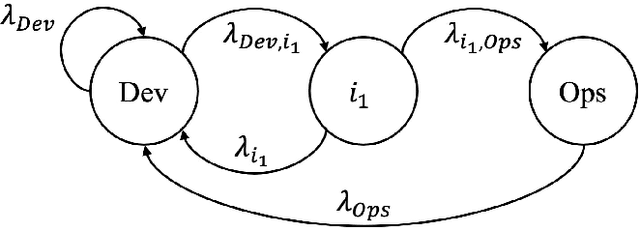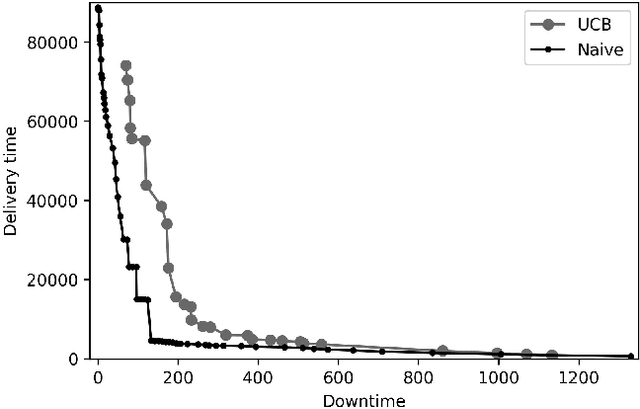Get our free extension to see links to code for papers anywhere online!Free add-on: code for papers everywhere!Free add-on: See code for papers anywhere!
Shadow Pritchard
Automating Staged Rollout with Reinforcement Learning
Apr 01, 2022Figures and Tables:



Abstract:Staged rollout is a strategy of incrementally releasing software updates to portions of the user population in order to accelerate defect discovery without incurring catastrophic outcomes such as system wide outages. Some past studies have examined how to quantify and automate staged rollout, but stop short of simultaneously considering multiple product or process metrics explicitly. This paper demonstrates the potential to automate staged rollout with multi-objective reinforcement learning in order to dynamically balance stakeholder needs such as time to deliver new features and downtime incurred by failures due to latent defects.
Via
 Add to Chrome
Add to Chrome Add to Firefox
Add to Firefox Add to Edge
Add to Edge